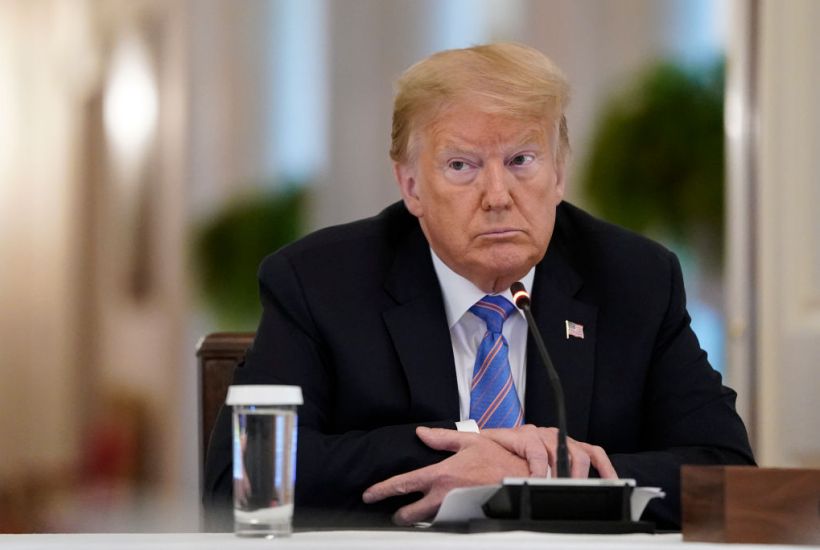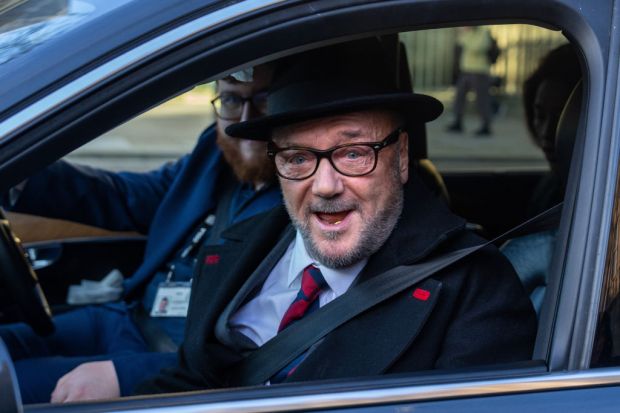The end of World War Two inaugurated the era of American dominion, with the United States politically, economically and militarily the most powerful nation on the planet. Yet throughout the subsequent period of American global ascendency, the American people endured a seemingly endless sequence of domestic crises, upheavals and disasters. Primacy abroad did not insulate them, convinced of their unique place in human history, from the trials and tribulations routinely befalling other, more ‘ordinary’ nations.
Yet neither did trials at home undermine the deep-seated belief that history had summoned the United States — and no one else — to lead the world. So even as presidents from Harry Truman to Barack Obama wrestled with pressing challenges at home (for Truman there was race and McCarthyism, for Obama race and the Great Recession), they all, without exception, testified to the nation’s indispensability. They deemed it their duty to do so. All, therefore, found ways to prevent domestic problems from encroaching upon America’s assertion of singularity among nations. Leading the world took precedence over addressing the contradictions and shortcomings affecting the American way of life. So from 1945 until the end of the 20th century, creating ‘a more perfect Union’ took a back seat to venturing ‘abroad, in search of monsters to destroy’.
Whatever the turmoil on the home front, this conviction that the United States was called upon to exercise global leadership remained unwavering. Even in 1968, when assassinations, racial unrest and widespread opposition to a deeply unpopular war brought the nation precariously close to unraveling, the conviction held. Two decades later, the fall of the Berlin Wall seemingly validated that conviction for all time. We were indeed, as presumably serious US officials proclaimed, the ‘indispensable nation’ and destined to remain so until the end of time. So we were led to believe.
Now, a mere three decades since the end of the Cold War delivered its seemingly decisive verdict, the barrier between what happens ‘out there’ and what happens ‘back here’ has been breached. Foreign policy and domestic matters are becoming intermingled. As a direct consequence, American global leadership appears noticeably rickety.
At a moment when media coverage suggests that Trump is everything and everything is Trump, it’s important to note that this intermingling dates from long before his presidency. It commenced on 9/11 when an event that was never supposed to happen — a devastating attack on the United States itself — did happen. Americans suddenly awakened to the fact that global leadership as practiced by the United States can produce painful blowback.
Reinforcing this shock to the system were other unpleasant surprises. First came wars in Afghanistan and Iraq that the world’s mightiest military was supposed to win but did not, despite sustaining terrible casualties and expending trillions of dollars. Second came episodes of stunning ineptitude by political authorities. Hurricane Katrina provided one example among many, showing that the people in charge were clueless about how to protect the population for which they were responsible. Hard on the heels of Katrina came the worst economic crisis since the Depression, suggesting that the people charged with managing the economy were incompetent, on the take, or both.
In 2016, the electorate responded by repudiating the establishment, voting into office a thoroughly unqualified presidential wannabe who promised to ‘drain the swamp’ and put ‘America First’. Donald Trump has kept neither of those promises. As the end of his first term approaches, the actual legacy of his presidency has now become clear: yet more ineptitude, cluelessness and incompetence, all reinforced by Trump’s trademark narcissism, vulgarity, blustering tough-guy posturing and casual dissembling.
History will doubtless judge Trump harshly. As US president, he has proven to be an abysmal flop. Trump has failed to end the wars he vowed to end. For all his self- touted skills as a dealmaker, his record consists chiefly of unfulfilled promises. He also failed to address effectively — or even acknowledge — the threat posed by COVID-19. As a direct consequence of his administration’s belated and bungling response to the pandemic, the death toll in the United States now exceeds a staggering 125,000. Trump, of course, accepts no responsibility for that outcome. Coming hard on the heels of the pandemic is the worst economic calamity since Herbert Hoover occupied the White House almost a century ago. Hoover ‘owned’ the Great Depression. So too Trump ‘owns’ the economic consequences of the Great Lockdown. Yet again he refuses accountability.
And finally, there is Trump’s typically callous and ham-handed response to the wave of civil unrest triggered by the police killing of George Floyd in Minneapolis.
Looking back on the nation’s recent past, baffled Americans are left to ponder two questions: how could this have happened? And what can we do to escape from the terrible straits in which we find ourselves?
A partial answer to the first question is this: for too long, ruling elites allowed the purported obligations of global leadership to take precedence over tending to the collective wellbeing of the American people. This was a conscious choice made by leaders of both political parties. We are now living with the consequences of that choice, with the persistence of racism offering just one example of what neglect has produced. Yet it deserves to be emphasized: the neglect was not Trump’s doing; he was merely its ironic beneficiary. We are its victims.
A preliminary answer to the second question must begin with this admission: the era of US dominion has now passed. So Americans can no longer afford to indulge in the fiction of their indispensability, cherished in elite circles. In fact, the sun has set on the American empire. Subordinating the wellbeing of the American people to ostensible imperatives of global leadership — thereby allowing racism, inequality, and other problems to fester at home — has become intolerable.
A massive reordering of national priorities is required. It goes without saying that Trump is incapable of presiding over any such reordering. Yet whether anyone else in mainstream politics is capable of doing so remains very much an open question.
Got something to add? Join the discussion and comment below.
Get 10 issues for just $10
Subscribe to The Spectator Australia today for the next 10 magazine issues, plus full online access, for just $10.




















Comments
Don't miss out
Join the conversation with other Spectator Australia readers. Subscribe to leave a comment.
SUBSCRIBEAlready a subscriber? Log in